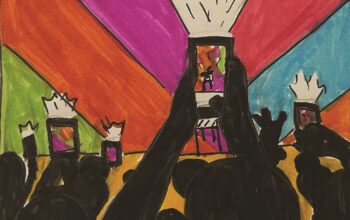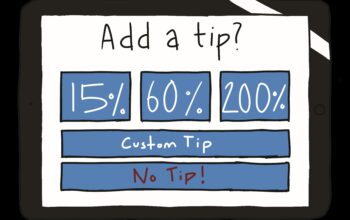
As COVID restrictions loosen up, lots of students seek to return to former thrills. On this list of thrills, for many, are concerts. Mosh pits and enthusiastic crowds are amazing experiences for some, but they are not compatible with a pandemic.
Andrew Noymer, professor of population health and disease prevention at the University of California, Irvine, has classified concerts as a “low-risk engagement,” due to the COVID protections in place. Many other public health experts concur. As such, many live music events have returned, some requiring proof of vaccination and mask wearing. Despite these precautions, infections of vaccinated individuals, known as breakthrough infections, are still possible.
Last summer, tens of thousands of eager concertgoers traveled to Chicago for Lollapalooza.
After the festival, the Chicago Department of Public Health reported 203 cases of COVID connected to the event. However, many reported a lack of masks, and many of these cases could have been prevented with proper masking.
Unfortunately, it’s not just the fans who are testing positive. The band Car Seat Headrest was forced to postpone multiple shows due to the lead singer, Will Toledo, testing positive for COVID during the tour. With this in mind, we must ask the question: is it too soon for live music to make its return?
To avoid contracting COVID at a concert, an outdoor venue is much safer than an indoor one. Many indoor venues do not have the best HVAC systems, and concertgoers may stand closer to one another. An outdoor venue offers an environment where catching COVID is much more difficult, but neither an indoor or outdoor show is likely to end in an attendee testing positive.
Many popular Seattle concert venues are indoor, but some still see these venues as safe. Junior Lexi White attended three indoor concerts during the pandemic.
White says, “I was really surprised with how well everybody was handling wearing their masks at concerts … It felt pretty safe from COVID.” She also reports a rough estimate of “80-90 percent” of her fellow attendees wearing masks.
Looking to the future, White says “I do have one [concert] that I’m going to have next month and I mean, I don’t plan on canceling it. I think if you wear a mask and that’s the guideline for going to the concert, you should wear a mask unless you’re drinking something.”
Despite what experts and attendees may say, the risk of COVID at a concert is still too great for some. Luckily, there are many virtual options for a similar concert experience.
Veeps, a company owned by Live Nation Entertainment, offers a platform for fans to watch live streamed concerts. Offering streams of groups such as Kings of Leon and Indigo Girls, Veeps has become a popular alternative to a concert.
Despite the alternatives, and the risk to some, a concert following proper guidelines is still a largely safe endeavor. While some have tested positive, they are a small minority in the bigger picture of concertgoers. A test concert in Minnesota found “no increased virus transmission risk associated with the event” between attendees and non-attendees.
Many concertgoers reflect on a safe concert experience. “I knew everybody had to be vaccinated to go into the stadium, so I felt pretty good,” says freshman Aidan Fairley.
Although there may be large numbers of people present, if everyone is vaccinated and wearing a mask, then concerts will remain a relatively safe experience.



